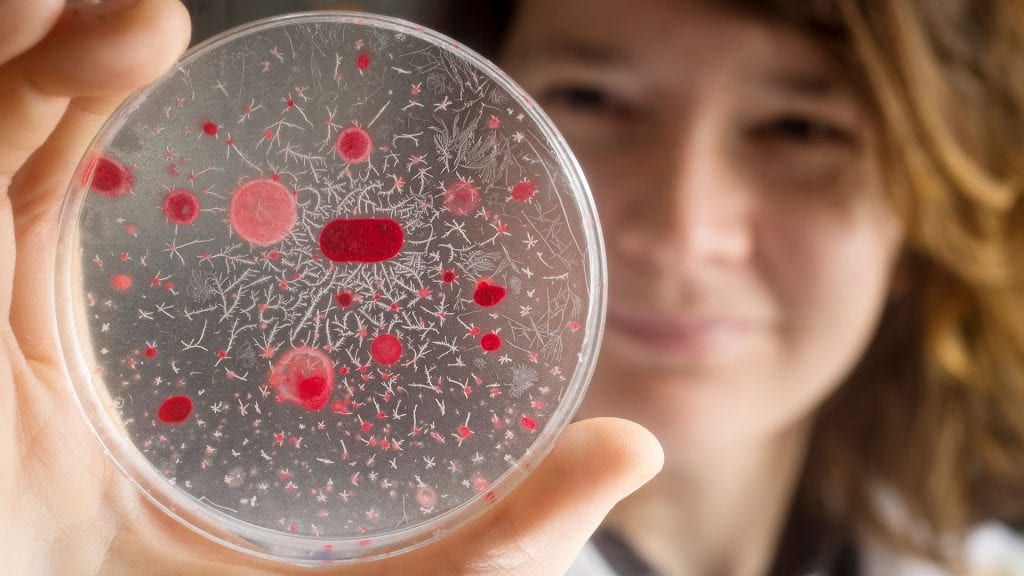The Cooperative Centers on Human Immunology (CCHI) have announced release of RFA-AI-22-069 to support interdisciplinary team science that will provide foundational information on human immune system function to support translation of immunology research into clinical benefits. The CCHI U19 mechanism supports mechanistic and hypothesis-testing studies to discover novel molecules, mechanisms, or regulatory pathways governing function of the human immune system in both healthy and vulnerable populations (i.e., across lifespan, organ/tissue transplant recipients, pregnant women). Studies of interest include immunity related to prevention or treatment of infectious diseases, immune-mediated pathogenesis/sequelae associated with infectious disease, and/or immune-mediated diseases. This FOA also supports technology development to advance studies of the human immune system. Applications are due on or before April 7, 2023.
Fourth Round of Pilot Grant Awardees Announced
The CCHI IOFM Core funded nine applications submitted in response to our RFA released August 31, 2022. The CCHI Steering Committee sought applications from CCHI centers to capitalize on emerging opportunities and encourage multi-center, multi-disciplinary collaborations. The immediate objective of the CCHI is to support mechanistic and hypothesis-testing studies to understand human immunity applicable to the biodefense effort (i.e. innate, adaptive and mucosal immune responses to infection, vaccination and adjuvants). Studies on immune-mediated diseases (e.g. airway allergy, food allergy, autoimmunity, organ transplant rejection) and basic human immunology are also of interest, as these data will provide a more comprehensive understanding of the human immune system. Special consideration is provided to investigators from groups shown to be underrepresented in the represented in the biomedical workforce (NIH’s Interest in Diversity, NOT-OD-20-031), Early Stage Investigators/New Investigators (ESI/NI, please see NIH Next Generation Research Initiative Policies), and investigators who are relatively new to human immunology research.
See the list of awardees below:
Continue reading “Fourth Round of Pilot Grant Awardees Announced”Postdoctoral Positions in Vaccine Development and Systems Immunology Available Immediately 03/29/2022
Center for Vaccine Development and Global Health (CVD), Immunology Group,
University of Maryland School of Medicine.
We are seeking postdoctoral fellows to work on immunological studies directed at understanding immune responses and uncovering immunological correlates of protection following immunization and infection in humans with the long-term goal of accelerating the development of novel vaccines. Studies will include exploration of the mechanisms operative in the generation of systemic and mucosal immunity in children, young adults and the elderly and their relationship to the gut microbiota. These studies will involve participants immunized with licensed or investigational attenuated and subunit vaccines, as well as volunteers challenged with wild-type organisms. Studies will involve the use of advanced technologies and instrumentation such as high-parameter flow cytometry and mass cytometry (50+ parameters/cell) with a focus on complex data analyses, as well as the performance of a variety of molecular biology and immunological techniques depending on the research questions being addressed. These include, among others, functional assays (e.g., cell purification, proliferation, cytotoxic T cell activity, Elispot, regulatory T cell activity, identification of T cell epitopes, B cell maturation and function), multiplexed cytokines/chemokines/biomarker determinations, bulk transcriptomics on heterogeneous populations and sorted cell subsets, single cell transcriptomics (scRNA-seq), CITE-seq, scTCR-seq, scBCR-seq, epigenetic landscape determinations, and role of microRNAs (miRNA) in the regulation of immunity.
Continue reading “Postdoctoral Positions in Vaccine Development and Systems Immunology Available Immediately 03/29/2022”Third Round of Pilot Grant Awardees Announced

The CCHI IOFM Core funded seven applications submitted in response to our RFA released September 2, 2021. The CCHI Steering Committee sought applications from CCHI centers to capitalize on emerging opportunities and encourage multi-center, multi-disciplinary collaborations. The immediate objective of the CCHI is to support mechanistic and hypothesis-testing studies to understand human immunity applicable to the biodefense effort (i.e. innate, adaptive and mucosal immune responses to infection, vaccination and adjuvants). Studies on immune-mediated diseases (e.g. airway allergy, food allergy, autoimmunity, organ transplant rejection) and basic human immunology are also of interest, as these data will provide a more comprehensive understanding of the human immune system. Special consideration is provided to investigators from groups shown to be underrepresented in the represented in the biomedical workforce (NIH’s Interest in Diversity, NOT-OD-20-031), Early Stage Investigators/New Investigators (ESI/NI, please see NIH Next Generation Research Initiative Policies), and investigators who are relatively new to human immunology research.
Gabriel Victora, PhD, MSc from Rockefeller University applied from the Rockefeller University CCHI U19 Center (Ravetch, PD/PI). Project is entitled “Reactivation and secondary hypermutation of memory B in humans following hepatitis B immunization”
Debattama Sen, PhD from Massachusetts General Hospital; MPI, George Lauer, MD, PhD applied from the Massachusetts General Hospital/University of Pennsylvania CCHI U19 Center (Chung and Wherry, PD/PIs). Project is entitled “Dissecting exhausted CD8+ T cell fate and function using epigenome editing”
Continue reading “Third Round of Pilot Grant Awardees Announced”